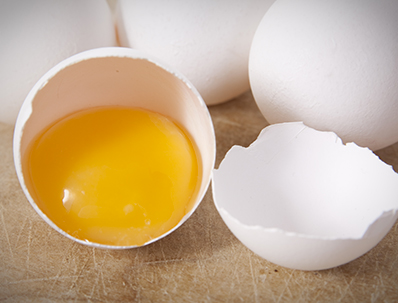Ways of Getting Rid of Rotten Egg Smell in Household Water

Contents
Get Rid of Rotten Egg Smell

The quality of household water is vital from the health perspective because poor quality water that contains impurities from natural or artificial sources can cause several diseases and pose health problems. Ideally, water used in households has to be a clear and clean without any contaminants and completely odorless. Even the slightest odor of any kind in water can render it unusable also if no health risks are arising from it. For example, you might come across water used in homes that might have a pungent smell that reminds you of rotten eggs. The smell of rotten eggs is so offensive, and people resent it so much that water becomes unusable in no time.
Sulfur water
This smelly water, commonly called sulfur water can be very annoying and despite not causing health problems is a nuisance no doubt. The smell comes from hydrogen sulfide gas dissolved in water which does not pose health risks at the concentration levels usually found in household water. The smelly water might run throughout the household but especially encountered when you use hot water. Besides the offensive smell, sulfur water reacts with many beverages like tea and coffee and discolors it and even distinctly changing the taste and appearance of cooked foods.
Corrosive water
Hydrogen sulfide that remains dissolved in water reacts with many metals and can corrode metallic items use in the household. Plumbing metals like steel, iron, copper, and brass corrode when exposed to sulfur water. Appliances like washing machines, etc that has metallic parts that come in touch with water corrode too as hydrogen sulfide reacts with it. When hydrogen sulfide reacts with iron and steel, it forms black water or ferrous sulfide that darkens silver and discolors brass and copper utensils. Water softeners become less efficient if it has to handle water that contains hydrogen sulfide.
Water that smells like rotten eggs contains dissolved hydrogen sulfide approximately about 0.1 mg of gas per liter of water (0.1 mg/l). The concentration is quite low and does not affect health, but it makes its presence felt by imparting the typical rotten egg smell to the water. Besides making the water smelly, the taste of water also changes even if it contains a much lesser amount of hydrogen sulfide which can be as low as 0.05mg/l.
From where does hydrogen sulfide come?
Hydrogen sulfide is a gas produced by the decomposition of underground organic matters like decaying plant material. Well water is the most prominent example of sulfur water because the naturally occurring gas in the depths of the earth mixes with the water and imparts it the typical smell. Using municipal water reduces the chances of sulfur water coming to your home.
Sewage pollution is another source for generation of hydrogen sulfide gas that can sometimes mix with surface water especially if wells are shallow or poorly constructed or located close to septic systems and sewer lines. Wells drilled in sandstone or shale or located near oil fields, and coal fields could be potential sources of water containing hydrogen sulfide. Besides hydrogen sulfide, well water also contains considerable amounts of iron and manganese but the occurrence of sulfur water can be seasonal and might not persist round the year.
Water heaters are the source of sulfur water
Even if you are not using water from the well, you could still face the problem of smelly water in households because every household uses water heaters which are potential sources of sulfur water. If the water contains anaerobic bacteria, it reacts with the metals like sulfur, magnesium, and aluminum present in the sacrificial anodes used in almost all kinds of water heaters and produces hydrogen sulfide gas that mixes with water and makes it smell like rotten eggs. To know more about smelly water log on to https://www.aquaoxfilters.com/hydrogen-sulfide-rotten-egg-smell/.
Testing for hydrogen sulfide
Water treatment methods are available for removing hydrogen sulfide in water but to determine which kind of water treatment will be suitable, you must know the concentration of hydrogen sulfide in water. Drawing of water samples to test for hydrogen sulfide can be tricky because the gas dissolved in water tends to escape quickly. Testing the water sample at the site or stabilizing it immediately before sending it for laboratory analysis are the only ways to ensure that the sample does not deteriorate before testing. Obtain sample bottles containing stabilizers from the laboratory that will do the testing for hydrogen sulfide only because it is not suitable for analyzing other contaminants. If you suspect that hydrogen sulfide mixes with water due to sewage pollution, you must test it for bacteria too.
Removing hydrogen sulfide from water
The concentration of hydrogen sulfide determines the kind of treatment that can remove the gas from water.
- Carbon filtration – If the level of hydrogen sulfide in water does not exceed a few tenths of a milligram in a liter of water, then carbon filtration can reduce the unpleasant taste of water that results from hydrogen sulfide as the carbon surface absorbs the gas. However, the chances of removal of unpleasant smell are quite limited. Once the filter becomes exhausted, it needs replacement.
- Aeration – For water containing not more than 2mg/l hydrogen sulfide, aeration is a proper treatment provided no freezing occurs, and there is no bacterial contamination. The set up of the treatment plant requires considerable space. The reduction of hydrogen sulfide might not always be considerable, and the smell of gas in the surroundings of the treatment plant is a concern.
- Iron removal filter – For removing hydrogen sulfide from water that contains 1 to 10 mg/l of the gas, iron removal filter that uses manganese green sand works well. Hydrogen sulfide oxidizes in the presence of manganese dioxide, and the oxidized particles collect at the bottom of the bed after filtration.
- Chlorination – Continuous chlorination by using an automatic chemical feed pump removes hydrogen sulfide from water if the concentration is more than 6 mg/l.
The last named method is most effective and widely used to get rid of the rotten egg smell from water.








